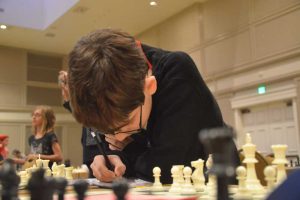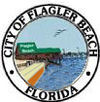
To include your event in the Briefing and Live Calendar, please fill out this form.
Weather:
- Daily weather briefing from the National Weather Service in Jacksonville here.
- Drought conditions here. (What is the Keetch-Byram drought index?).
- Check today’s tides in Daytona Beach (a few minutes off from Flagler Beach) here.
- Tropical cyclone activity here, and even more details here.
Today at a Glance:
Drug Court will not be held this week.
The Flagler Beach City Commission meets at 5:30 p.m. at City Hall, 105 South 2nd Street in Flagler Beach. Watch the meeting at the city’s YouTube channel here. Access meeting agenda and materials here. See a list of commission members and their email addresses here.
Model Yacht Club Races at the Pond in Palm Coast’s Central Park, from noon to 2 p.m. in Central Park in Town Center, 975 Central Ave. Join Bill Wells, Bob Rupp and other members of the Palm Coast Model Yacht Club, watch them race or join the races with your own model yacht. No dues to join the club, which meets at the pond in Central Park every Thursday.
Evenings at Whitney Lecture Series hosted by the University of Florida Whitney Laboratory for Marine Bioscience at 6 p.m. (Note the new time.) This free lecture will be presented in person at the UF Whitney Laboratory Lohman Auditorium, 9505 Ocean Shore Boulevard, in St. Augustine. Those interested also have the option of registering to watch via Zoom live the night of the lecture. Go here to register for this month’s lecture. See previous lectures here.
Diary: It isn’t just smell or sound that can provoke a shock of memory. I was reading George Simenon’s Maigret’s First Case, where Simenon sends his peripatetic hero (I have been wanting to use that peripatetic for months, but doing so in a news story might’ve gotten my house firebombed) all over Paris’s wealthier neighborhoods on the trail of a nasty rich family’s secrets, one of which could harbor a murder, and a murderer. The story is set in 1913 Paris (the peripatetic is not just geographic, with Simenon.) I came across these lines: “—Is he married? Maigret wasn’t sure, because he didn’t dare push his questionnaire too hard, but he had the impression that Dédé was a rather special type of gentleman and that, if he had a companion, it was on the sidewalk, between l’Etoile and Place des Ternes, that he would have the best chance of meeting her.” The emphasis is mine, because it was walking out of the metro station at Charles de Gaulle-Etoile through a lugubriously long tunnel, as I was walking on my way back to where we were staying near the Place des Ternes that July in 1978, that it happened: my first conscious encounter with outright predation. I say conscious, because as a little boy attending Jesuit school in Lebanon I have equally little doubt that either the Jesuit nuns or the more priestly predatory male priests among them violated me a few times. But I have no conscious memories of that. Certainly not as conscious as their more overt physical abuse. And I don’t want to be too prejudicial here: one of my Arabic tutors, who was Muslim as I recall (I don’t know whether Sunni or Shiite, not that either makes a difference) was somewhat too free with his hand on my shorts a time or two–I was maybe 7 or 8–before he was felled by a heart attack in way too frightening proximity to his attempted molestations, and my prayers. It is I think the only time my Catholic prayers were answered so explicitly, so viciously (enough to make you a disbeliever in that bunk), though I’m not so sure if it’s the tutoring in a language I despised at the time (I despise it no longer, but I could never master it) or the molesting that bothered me most. At that age the two felt equally terrorizing. At any rate: back to Paris. That July–specifically, late July and early August 1978–I had just left Lebanon for the first time in my life. My mother and two brothers and I were on our way to Kingsport, Tenn., for the summer, before we three boys were to be shuffled off to boarding school in Canterbury, in England (at the King’s School). France’s air traffic controllers were on strike. So we were stuck in Paris for a couple of weeks–to my great joy. A Parisian friend and I would spend our days in the metro, on a single metro ticket. It fascinated my hick self, as did anything western. Little did I know. On one of those daylong romps underground I was returning home by myself. The friends who’d put us up had left town, and left their house, in Paris’s posh 17th Arrondissement, to us. It was in a narrow cobble-stoned little street off either Place des Ternes or the Avenue des Ternes, I don’t remember. It was a long walk from the subway stop at L’Etoile–that is, the roundabout with the Arc de Triomphe at its center. As I was walking through that tunnel, a lanky nobody seemed to have mistaken himself for my shadow. I could not get free of him. There he walked, too close, but not so close to touch. I finally looked at him inquisitively, as in: what the fuck do you want with me? (The what the fuck is today’s embellishment, it’s what I wish I had told him. At the time, though I was 12, I did not know those words. A 12 year old from a bourgeois Lebanese Christian family was the same as a suburban American 6 year old. I had been raised by nuns and my saintly mother, remember? My father was dead two years by then.) What really happened was that I must’ve just looked at him with frightened eyes, unable, or too ashamed, to run, or even edge myself away more speedily, as I would learn to do in the New York subway at the mere hint of danger. He looked at me, and these words are exactly what he said, because I remember them as horribly as I wish I didn’t, and not too loud for anyone else to hear–it was evening rush hour–but distinctly enough that he obviously had practice: Tu veux que’j’te’l suce? Or without the patois spelling, Tu veux que je te le suce? Or, in English: Do you want me to suck it? I had never heard the line before, I had never heard the line before, intellectually I did not know what it meant, I would have never imagined a man capable, or willing, or depraved enough to carry out the act suggested by the word, even though there was no question in my mind what he meant by le, by it. But But Locke was wrong. We’re not entirely clean slates, free of innate memory or instinct. Sometimes, certain things hit you with total instinctive awareness no matter how foreign they may be. Maybe my Jesuit violations were gasping to alert my synapses. I don’t known. This was one of those times. I didn’t know what he was saying, and I knew exactly what he was saying. The words had a physical, visceral effect–and not just in my viscera. I remember something like what a mild lightning bolt would have felt like, a repulsive current of fright zapping me, almost immobilizing me, except that it may have kicked in the adrenaline I needed to begin formulating an escape, but not before my next shame, even more powerful than my fright. As repulsed as I was (I’m not sure I even knew what a pederastic act was at the time, let alone child predation: I really was terribly innocent), I replied! I told him: “Non.” Just “No.” But the kind of “No” you say to someone offering you, say, a glass of lemonade. My only saving grace is that I did not say what I had been taught to say, on pain of death if I didn’t say it all, politely, which was non, merci. I just said non, which tells me that I had at least a tiny shred of knowing outrage, or defense, working in me, maybe better than I knew, because somehow the fucker didn’t insist, or maybe someone walked up close to us, spooking him, or maybe I walked faster. What I do know is that once I was overground, once I was clear of Napoleon’s ghastly memorial, I ran back to the Avenue des Ternes and whatever little street we were staying at until I hit the door. I don’t remember who among my family members was there. Only that I said nothing. I was terrified, and would be scared to go back out to that metro station alone for the rest of our stay in Paris, finding every possible way to be accompanied. It was a nothing moment in retrospect, an encounter no more assaultive than a flasher, and maybe no less, though the effect was crushing, and the memory is not yet undisturbing. It makes actual, physical predation, the act itself, unimaginably cruel in its power to demolish a young person, and of course not just their safety. It takes nothing to do it, and heaven knows I routinely hear the most violent cases of predation in court. I got lucky: the predator was a stranger, vanished with my safeguarding fright. It isn’t them who do the most damage. Luckier for me, the home I was returning to was safe, as have been the intervening years in that regard. I had not thought of that memory for years. Until Maigret’s First Case.
—P.T.
View this profile on Instagram
![]()
The Live Calendar is a compendium of local and regional political, civic and cultural events. You can input your own calendar events directly onto the site as you wish them to appear (pending approval of course). To include your event in the Live Calendar, please fill out this form.
January 2026
East Flagler Mosquito Control District Board Meeting
Nar-Anon Family Group
Palm Coast City Council Meeting
In Court: Angel Marie Sexton Sentencing
Flagler Beach United Methodist Church Food Pantry
In Court: Kristopher Henriqson
Weekly Chess Club for Teens, Ages 10-18, at the Flagler County Public Library
Flagler Beach Library Writers’ Club
Random Acts of Insanity Standup Comedy
Contractor Review Board Meeting
Flagler County’s Technical Review Committee Meeting
Flagler Tiger Bay Club Guest Speaker: Jeff Brandes
Separation Chat: Open Discussion
The Circle of Light A Course in Miracles Study Group
Palm Coast Planning and Land Development Board
For the full calendar, go here.

Not all Europeans remained as enamored of Napoleon for as long as the genius of Weimar. In Vienna, Beethoven composed a symphony, the Eroica, for Napoleon-then, disillusioned with the worldly arrogance of his hero as demonstrated by the coronation of 1804, canceled his dedication. “Is he then also nothing more than an ordinary human being?” he lamented to his friend Ferdinand Ries. “Now he too will trample on all the rights of men and indulge only in his ambition. He will exalt himself above all the others and become a tyrant.” A remarkable prediction; Beethoven then went to the table, took hold of the title page of the Eroica by the top, tore it in two, and threw it on the floor. . What he really felt about the new emperor was perhaps better demonstrated in his impassioned one-and-only opera, Fidelio. A hymn to freedom, fidelity, hope, and courage under imprisonment, it first played to empty houses in Vienna, in November 1805, then occupied by the French. Was a disillusioned Beethoven thinking of Napoleon, and possibly of the brutal execution of d’Enghien that March? Meanwhile, in France that same year, one of Napoleon’s chief supporters among the intelligentsia, Chateaubriand, had also resigned in anger after the murder of the duke-then emigrated, and joined forces with Madame de Staël in opposition to Napoleon. In consequence, Napoleon would never bewitch liberal intellectuals at home with anything like the same degree of success that he had had with their counterparts abroad.
–From Alistair Horn’s The Age of Napoleon (2006).











































Pogo says
@Crime wave continues
… and the police, courts, and God Herself are fired: or accomplices — or spectators, at best.
https://www.marketwatch.com/story/empty-shelves-for-lease-signs-and-job-layoffs-point-to-recession-by-summer-697ff68b
Sherry says
More From Robert Reich:
Today, the Federal Reserve decided to leave interest rates where they are, at 4.25 percent to 4.5 percent. Although the Fed acknowledged that the labor market was still “solid,” it also noted that “risks of higher unemployment and higher inflation have risen.”
Recall that last November, the single biggest reason voters gave in exit polls for choosing Trump was that he’d bring prices down.
Last Saturday, 25 percent tariffs on auto parts came into effect (distinct from pre-existing tariffs on the imported autos themselves).
Every one of the 10 million cars built in the United States last year had at least some imported parts. So, the price of American-made cars is about to go up.
Tariffs will add an average of about $4,000 per car bought by Americans.
Not just cars.
Although Trump has scaled back some tariffs and paused others as he seeks trade deals with foreign nations, his tariffs are already eating into household budgets.
More companies are warning consumers that they’ll be raising prices as a result of the tariffs.
On Wednesday, Stanley Black & Decker said it had raised prices on its tools and outdoor products and will raise them again later this year.
Executives at Procter & Gamble (which makes everything from Tide detergent to Bounty paper towels) say they’ll likely increase prices to compensate for the higher tariffs.
Hasbro says the toymaker will “have to raise prices.” (This hardly means that children will have to make do with two dolls instead of 30, as Trump says.)
About 90 percent of durable baby and children’s products sold in the United States are manufactured overseas, mostly in China. That also means higher prices for families.
A new survey from the Dallas Federal Reserve shows almost 55 percent of Texas businesses expect to pass cost increases due to the tariffs on to their customers.
Tariffs will particularly hurt small businesses. They’re less able to pass the extra expenses onto consumers because they compete directly with other small businesses for every consumer dollar. And they have less cushion against economic downturns.
This bodes ill for American workers, since 80 percent of U.S. employment comes from small businesses with fewer than 500 workers. The likely result: higher unemployment.
Most price hikes and job losses will begin hitting his month.
But here’s the question: Will consumers and workers realize Trump is the cause? And if they do, will they remember this by the November 2026 midterm elections?
Sherry says
TRUMP OBVIOUSLY DISOBEYING THE SUPREME COURT:
This from Joyce Vance:
On April 16, I wrote to you about a hearing in the Kilmar Abrego Garcia case, which is before U.S. District Judge Paula Xinis in Maryland. At that time, she characterized the steps the government had taken to facilitate his return to the U.S. following the Supreme Court’s direction they must do by saying, “The record reflects defendants have done nothing at all.” As we discussed that evening, she ordered expedited discover including that “Abrego Garcia’s lawyers can also take depositions of four specified government officials and two players to be named based on what they learn in discovery.”
The case was briefly stayed after both sides asked the court to do that to permit them to have additional conversations. Apparently, whatever progress was in the works didn’t pan out, and on April 30, Judge Xinis entered a new expedited discovery schedule. This morning, Abrego Garcia’s lawyers filed a motion asking the Judge to permit them to depose representatives of the Departments of State and Homeland Security and of the Justice Department. And here’s the kicker—they also advised the Judge they might request permission to depose someone in the White House. This request follows on the depositions the court originally authorized. The motion notes that “Three of those four depositions have now taken place, and, as described below, Plaintiffs are still in the dark about the Government’s efforts to facilitate Abrego Garcia’s release from custody and return to the United States.” That statement in the motion is followed by a redacted block.
Almost three full pages of redaction follow. The redacted section appears to be information about Abrego Garcia’s current location and status and any efforts the government has taken to facilitate his release.
The motion concludes with this cryptic footnote: “In fact, as seems apparent from its public statements, this case also involves decision-making at the White House in addition to the three Departments. Accordingly, depending on the testimony obtained in any authorized Department depositions, Plaintiffs may need to seek additional testimony from an appropriately knowledgeable representative of the White House.” Abrego Garcia’s lawyers want to know who in the executive branch is preventing compliance with the Supreme Court’s order. It’s an important question and ultimately, the courts may have to decide whether the government is in contempt.
Abrego Garcia’s lawyer may learn who, presumably in the White House, was responsible for making the call to do, as the court said, “nothing at all” in these additional depositions if the court allows them. Or, they may come up empty-handed if the agency deponents refuse to answer where their orders came from or claim not to know. In either case, it’s likely there will be a request to depose someone in the White House who can answers questions, including who that person is—who has authority to facilitate release but has failed to do so.
Of course, Donald Trump has already publicly stated in an ABC interview that he “could” secure Abrego Garcia’s return.
“You could get him back. There’s a phone on this desk,” ABC’s Terry Moran told Trump, pointing at the phone on his desk in the Oval Office.
“I could,” Trump said rather proudly.
“You could pick it up, and with all—” Moran began to say before Trump cut him off.
“I could.”
That’s evidence. Evidence the government could have complied with the Supreme Court’s 9-0 decision ordering it to facilitate return but deliberately refused to. Trump concluded that “if he [Abrego Garcia] were the gentleman that you say he is, I would do that [call and ask for his return],” yet again entirely missing the point that this has nothing to do with Abrego Garcia’s character. It is about his right—and by extension all of our rights—to receive due process before the government takes action against us. That’s what’s at stake here and the stakes are high.
Trump continues to be his own worst enemy. Here, it was predictable. Moran teed up the question so Trump could either appear weak—there was nothing he could do—or acknowledge the truth, that Abrego Garcia is in custody at his request and remains under his control, in the sense that he could request his return or other treatment. Trump took the bait.
As hundreds of men remain in custody in the CECOT terrorism confinement facility, having received no due process, and as the government contemplates “deporting” more to Libya, a move that may come to a head today or later this week, immigration policy continues to be one of the keys to understanding this administration. Despite the electioneering claims, there are no massive deportations of murderers and other violent criminals. Instead, there is a slow but certain effort to undo the Constitution. An effort we cannot tolerate.
Ray W, says
FactCheck.org reports that it may have found the source for President Trump’s many claims that gas prices have dropped below $2 per gallon in several states. This past Sunday on Meet the Press, President Trump said:
“Prices are down at tremendous numbers for gasoline. … It went up to $3.90, even $4. And in California, $5 and $6. Right? Okay. I have it down to $1.98 in many states now.”
American consumers are used to buying “finished reformulated gasoline.” One of the constituent parts of finished reformulated gasoline is “reformulated blendstock for oxygenate blending.” RBOB is a commodity traded wholesale that is to be blended with oxygenates, i.e., ethanol or other similar oxygenating products.
RBOB prices on the New York Mercantile Exchange recently dropped below $2 per gallon for a few days, but it isn’t something we would call gasoline for sale to the public. The wholesale price for RBOB does not include federal or state taxes on gasoline, nor does it reflect distribution and marketing costs to eventually get it to gas stations.
FactCheck.org found that according to the EIA the national average price for gasoline as of May 5, 2025 was $3.15 per gallon, up from about $3.11 per gallon on Inauguration Day. According to AAA, the lowest state average price for gasoline, in Mississippi, was $2.65 per gallon, as of May 7.
Make of this what you will.
Me?
There exists at the top of one of our two political parties a professional lying class whose modus operandi is to lie in hopes that the gullibly stupid among us will launder their lies.
As an aside, FactCheck.org also reports that when President Trump began telling the American people that egg prices had been dropping, he was referring to wholesale egg prices, not retail egg prices. At the time, retail egg prices were still on the rise, peaking a few weeks ago. Retail egg prices have begun dropping, though outbreaks of the avian flu continue to erupt across the country.
According to the CDC, since April 1, 2025, there have been 22 outbreaks of avian flu. Seven have involved “non-poultry.”
The largest outbreak, impacting 700,000 “commercial table egg poultry”, occurred on April 30th in Aurora, South Dakota. Another outbreak, involving 293,000 “commercial table egg layers”, occurred in Darke, Ohio on April 14th.
Most outbreaks in birds have involved relatively few chickens, but two other outbreaks, one in Beadle, South Dakota and another in Sheboygan, Wisconsin, involved more that 30,000 poultry each.
Ray W, says
I have repeatedly commented on the fact that combined-cycle gas turbine (CCGT) electricity plants shut down each spring and fall during low-demand periods for routine maintenance and deferred repairs. My elder daughter’s husband works for Mitsubishi Heavy Power as one of many engineers who maintain and repair CCGT plants. Electrical engineers can’t take vacation time during the spring or fall due to the heavier workload.
The same thing happens in the refinery sector. Refineries shut down each spring to reconfigure their processes to produce “summer-blend” gasolines; they shut down again each fall to reconfigure back to producing non-summer blends of gas. During the downtime, repairs and ordinary maintenance takes place. This process of shutting down refineries twice per year takes gasoline and diesel fuel output off the market like clockwork. Perhaps this explains why today’s gasoline prices remain higher than they were on January 20th. I expect gas prices to soon begin dropping all across the country because crude oil futures have been dropping for weeks and most of the closed refineries have reopened for summer-blend production.
Nonetheless, of the nine refineries in California, the Martinez Refining Company refinery exploded earlier this year, injuring six workers. The refinery has yet to return to full output. An oil industry analyst told a reporter that the Martinez refinery is “limping along.”
The Valero refinery in Benicia caught fire this past Monday. It is still offline, and Valero had announced prior to the fire that the plant might shut down for good, in part due to California’s stricter gas and air regulations.
Phillips 66 plans to close its Los Angeles refinery later this year, though no reason for the shutdown was reported in the article I read. I looked for possible reason(s). I found an October 24, 2024, Phillips 66 press release, in which the company asserted that it had listed its two 650 acres parcels near the Port of Los Angeles with two real estate redevelopment firms to explore better uses for its strategically located sites.
Seeking the highest and best use of a property is an ancient concept in real estate circles. Years ago, NASCAR built a racetrack on a closed steel mill parcel. Years later, NASCAR closed the track, and it was redeveloped for housing. In recent months, FlaglerLive has published at least one story about a building at a busy Palm Coast location being torn down to put in another type of business.
Make of this what you will.
Me?
If Phillips 66 can make more money closing the refinery and redeveloping it to a different higher and best use, thereby making gasoline more expensive in California, supply and demand being what it is, can it be argued that all of us should in the near-term expect to read or hear a lot of lying from the professional lying class at the top of one of our two political parties about California gas prices. Certain FlaglerLive commenters, long prone to laundering lies, will likely do what they so often do, oblivious to their displays of intellectual dishonesty.